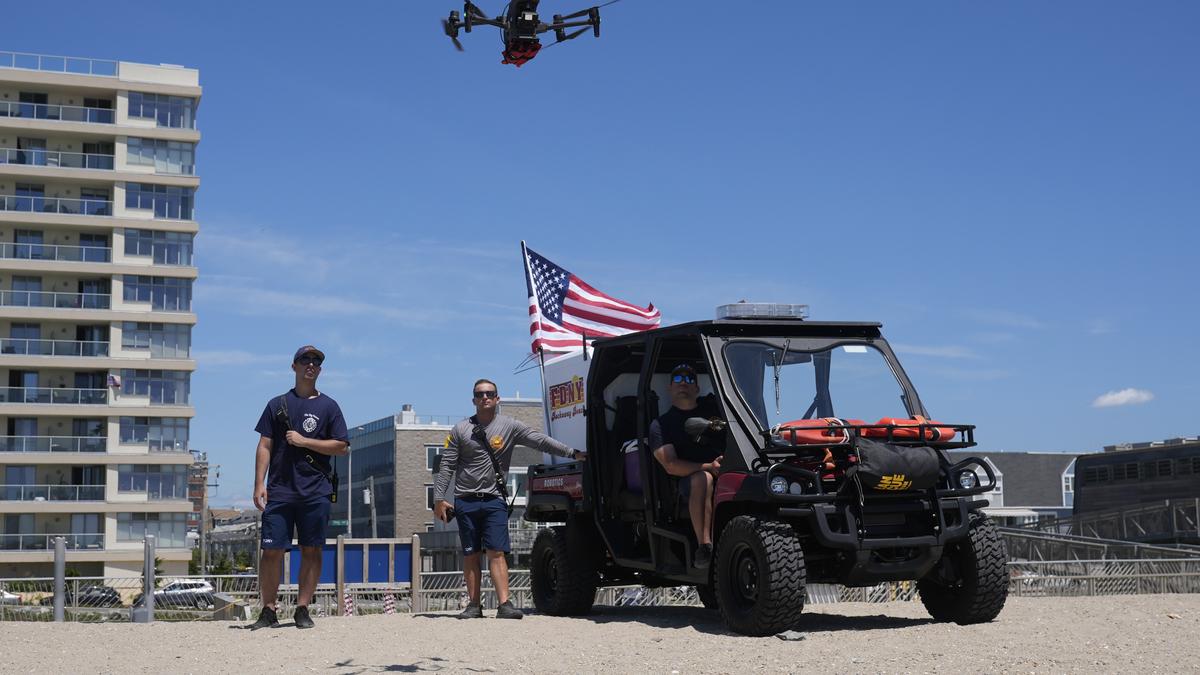New York City emergency management officials have apologised for a hard-to-understand flood warning issued in Spanish by drones flying overhead in some neighbourhoods.
City officials had touted the high-tech message-delivery devices ahead of expected flash flooding Tuesday. But when video of a drone delivering the warning in English and Spanish was shared widely on social media, users quickly mocked the pronunciation of the Spanish version delivered to a city where roughly a quarter of all residents speak the language at home.
“How is THAT the Spanish version? It’s almost incomprehensible,” one user posted on X. “Any Spanish speaking NYer would do better.”
“The city couldn’t find a single person who spoke Spanish to deliver this alert?” another incredulous X user wrote.
“It’s unfortunate because it sounds like a literal google translation,” added another.
Zach Iscol, the city’s emergency management commissioner, acknowledged on X that the muddled translation “shouldn’t have happened” and promised that officials were working to “make sure it doesn’t happen again.”
In a follow-up post, he provided the full text of the message as written in Spanish and explained that the problem was in the recording of the message, not the translation itself.
(Unravel the complexities of our digital world on The Interface podcast, where business leaders and scientists share insights that shape tomorrow’s innovation. The Interface is also available on YouTube, Apple Podcasts and Spotify.)
Iscol’s agency has said the message was computer generated and went out in historically flood-prone areas in four of the city’s five boroughs: Queens, the Bronx, Brooklyn and Staten Island.
Flash floods have been deadly for New Yorkers living in basement apartments, which can quickly fill up in a deluge. Eleven people drowned in such homes in 2021 as the remnants of Hurricane Ida drenched the city.
In follow-up emails Wednesday, the agency noted that the drone messaging effort was a first-of-its-kind pilot for the city and was “developed and approved following our standard protocols, just like all our public communications.” It declined to say what changes would be made going forward.
In an interview with The New York Times, Iscol credited Mayor Eric Adams with the initial idea.
“You know, we live in a bubble, and we have to meet people where they are in notifications so they can be prepared,” the Democrat said at a press briefing Tuesday.
Adams, whose office didn’t immediately comment Wednesday, is a self-described “tech geek” whose administration has embraced a range of curious-to-questionable technological gimmicks.
His office raised eyebrows last year when it started using artificial intelligence to make robocalls that contorted the mayor’s own voice into several languages he doesn’t actually speak, including Mandarin and Yiddish.
The administration has also tapped drone technology to monitor large gatherings and search for sharks on beaches.
The city’s police department, meanwhile, briefly toyed with using a robot to patrol the Times Square subway station.
Last month, it unveiled new AI-powered scanners to help keep guns out of the nation’s busiest subway system. That pilot effort, though, is already being met with skepticism from riders and the threat of a lawsuit from civil liberties advocates.











